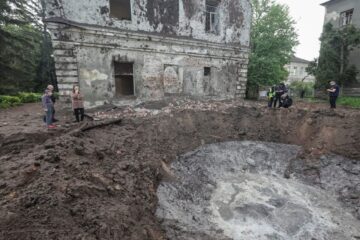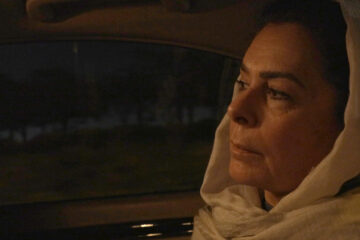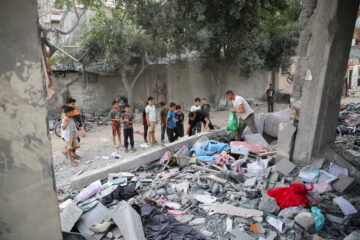Reuters
Opposition supporters will march through Moscow on Sunday in memory of Kremlin critic Boris Nemtsov, whose murder has increased concern about Russia\’s future among opponents of President Vladimir Putin.
Thousands of people laid flowers and lit candles on Saturday on a bridge near the Kremlin where the opposition politician and former deputy prime minister was shot dead late on Friday.
National investigators who answer to Putin say they are pursuing several lines of inquiry, including the possibility that Nemtsov, a Jew, was killed by radical Islamists or that the opposition killed him to blacken the president\’s name.
Putin\’s opponents say such suggestions show the cynicism of Russia\’s leaders as they whip up nationalism, hatred and anti-Western hysteria to rally support for his policies on Ukraine and deflect blame for an economic crisis.
"It is a blow to Russia. If political views are punished this way, then this country simply has no future," Sergei Mitrokhin, an opposition leader, said of Nemtsov\’s murder.
Putin has described the killing as a "provocation", and told Nemtsov\’s mother that the killers would be found and punished.
Some Muscovites, accepting a line repeated by state media, appear to agree that the opposition, struggling to make an impact after a clampdown on dissent in Putin\’s third spell as president, might have killed one of their own.
"The authorities definitely do not benefit from this. Everybody had long forgotten about this man, Nemtsov … It is definitely a \’provocation\’," said one Moscow resident, who gave his name only as Denis.
Nemtsov, who was 55, was one of the leading lights of an opposition struggling to revive its fortunes, three years after mass rallies against Putin that failed to prevent him returning to the presidency after four years as prime minister.
Putin has now been Russia\’s dominant leader since 2000, when ailing President Boris Yeltsin chose the former KGB spy as his successor, a role Nemtsov had once been destined to play.
Even many of Putin\’s opponents have little doubt that he will win another six years in power at the next election, due in 2018, despite a financial crisis aggravated by Western economic sanctions over the Ukraine crisis and a fall in oil prices.
Many opposition leaders have been jailed on what they say are trumped-up charges, or have fled the country.
Nemtsov had hoped, however, to start the opposition\’s revival with a march in Marino on the outskirts of Moscow on Sunday to protest against Putin\’s economic policies and what they see as Russia\’s involvement in the separatist war in east Ukraine. The Kremlin denies any role in the fighting.
Announcing a new plan after Nemtsov\’s death, Leonid Volkov, one of the organizers, said: "The march in the Marino district which we had planned – a positive march with flags and balloons – does not fit this tragic moment and the magnitude of Nemtsov\’s persona, as well as the magnitude of the red line we have now crossed and which we have not yet recognized."
The opposition said Moscow city authorities had approved the march from 3 p.m. (1200 GMT), allowing for up to 50,000 people, though the organizers say more could show up to march alongside the River Moskva.
Nemtsov had said in an interview that he feared Putin may want him dead because of his outspoken criticism of Russia\’s role in Ukraine.
Ukrainian President Petro Poroshenko said Nemtsov had told him about two weeks ago that he planned to publish evidence of Russian involvement in Ukraine\’s separatist conflict.
"Someone was very afraid of this … They killed him," Poroshenko said in televised comments shown in Ukraine.
Kiev, the West and some Russians accuse Moscow of sending troops and weaponry to support separatist rebels who have risen up in east Ukraine, an accusation Russia has denied.
Others saw the murder as a result of a climate of fear where Putin demands total loyalty and supporters go to great lengths to do what they think may please him.
SOURCE: REUTERS
[do_widget_area inner_adsbar]










